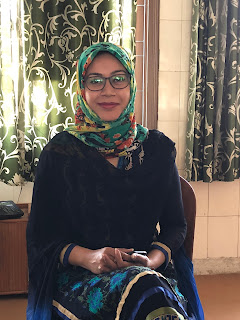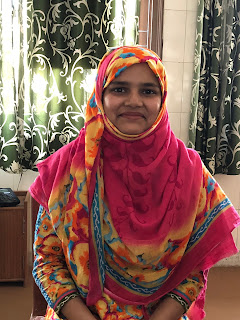Emirates flight EK219 from Dubai to Orlando appears to be on time, so I make my way through security where a uniformed kid who still seems to be weaning off his pampers tells me I can’t take the empty bottle I use for bathroom hygiene onboard. Ah well. Aboard, I wait for an elderly Indian woman blocking my way to the window seat to step aside. She is obviously struggling with her carry-on suitcase, and before I can offer my impeccable manners to help, she looks up at me snappily and chides me in perfect Hinglish.
Well, young man, don’t stand there and gape at my struggles. Help me, na?
Flustered and stung by the unfair accusation, I quickly help her store the rather weighty suitcase above. I’m only being nice because she called me young man, mind you. She offers me no gratitude, but slumps into the seat next to mine instead, moping her brow. She’s going to be my neighbor for the next 15 hours; I groan inwardly. There were so many pretty ladies around at the boarding gate earlier, and I was hoping I’d get one sitting next to me so the flight would speed by in interesting discourse perhaps; no such luck. The ancient thing next door regards me unabashedly for a while, and I squirm in my seat in discomfort, but then smiles her thanks, the creases of age on her face disappearing momentarily. Then she does something quite odd for an aged Indian woman; she asks a hovering steward for a double whiskey. He, like me, is taken aback, him blinking rapidly. He recovers, smiles and tells the old hag that the bar will open only after takeoff.
Well, I need the whiskey to calm my nerves, else I get mighty cranky, and that’ll set off unpleasant results. I doubt this young man next to me will appreciate that eventuality.
She looks at me and winks; I have no idea what she’s up to. But she can be as cranky as she likes, as long as she continues referring to me as a young man. They compromise that a glass of champagne would suffice until after takeoff. I groan again. Now, I’ll have to put up with the offensive smell of rotting grapes and barley. I’ve never taken to the odor of alcohol, even with over 30 plus years of service in corporate America, in management positions, where the use of this intoxicant is rampant and readily acceptable. I needn’t have worried so much. Except for a rather robust and angry fart during takeoff, which she beamingly blames on the lack of the whiskey, the champagne does seem to mellow her, and the whiskey afterward puts her into snoring slumber almost the entire trip.
It’s going to be boring 15 hours flight, again, with only my crosswords and writings to provide some cheer. The Emirates movies are all repeats, the better ones; I’ve watched almost all of them. An attractive neighbor would have been excellent company, but this one is gone to the clouds, snoring her champagne and whiskey gently away. Sighing in self-pity, I settle down to read the local media, which informs me that UAE has been ranked the happiest city in the Middle East. Fantastic. Another ceaseless laurel in the hat of this blessed country. Right next to the happiness report, another reporter is telling me that a salesman has been arrested for groping a woman. Hmm. I don’t wish to exaggerate, but I’m almost certain I read of at least a couple of groping incidents in UAE every day. The ones that get reported, that is. I wonder how happiness is measured. The people of UAE must not be too happy if they resort to regular groping, would they? Hmm. A perky brunette stewardess breaks my weighty contemplation on this grave matter with a phony smile, false fluttering eyelids and all the rest - she wants to know if I’ll have dinner with Emirates. At 2 AM? I shoo her away. I’m not hungry, plus I’ve had a mighty heavy hard-to-find-in-Orlando ndeezi-mbeechi at sister Sabira Somji’s earlier. The brunette makes a face, wounded by my rebuff, and tries her luck with the sleeping mummy next door; all she gets is an annoying snort.
I’m coming home after somewhat feverish three weeks that takes me to the CAI project at the Rohingya refugee orphans in Cox’s Bazar, Bangladesh (read report here), to freezing, windy London, UK and then to the SGH construction project nearing completion at Sirsi, UP, India. India is where CAI activities took off some 21 years ago and Sirsi, in particular, holds a special place in me. This is where about 1,000 financially challenged students from varying rural backgrounds get an opportunity for a quality education. It is also where I’ve butted heads with ancient, unjust mindsets against girls, denying them the right to education and opportunities otherwise made readily available to men. CAI, through me, have consistently pushed to put the gentler sex on an even playing field with the men. This exercise is exceptionally challenging, daunting and exhausting, and I still face some unrelenting hostility along the way. So, I am ecstatic with the following two milestones events at the Sirsi school.
Iram Fatema - First Female Principal:
Sayeda Iram Fatema takes over as the Principal of our school, leading over 1,000 students and 40 plus staff into a brighter and progressive future, insha’Allah. Iram Fatema has a solid academic background and years of experience as an educationalist. She’ll have to fight her battles, of course, and lead a team deeply ingrained in male dominance and superiority. With the solid support of the school management and unwavering backing of CAI, I am confident Iram Fateme will prevail and progress insha’Allah. We all welcome Iram Fatema.
Noorien Faridi – Student Turned Teacher.
Noorien Faridi joined the school as a student in Grade 2, when she was 8. The school had only three grades during that time. Her father, the sole earner at home, died at a rather young age, so even the nominal fees the school charged then, was a mighty challenge. But with a progressive thinking mother and supportive relatives, she prevailed. A diligent student, she proved her mantle and graduated from high school and with help from Al Imaan scholarships, pursued a 3-years college education, and a year of teachers training. Noorien was roped in by the very school she did her elementary education as a teacher’s assistant and was recently promoted as a full-term teacher for grades 6 – 8, taking on average class sizes of 40 rowdy students, an intimidating prospect.
Noorien requests to continue her studies and wants an MBA as part of her credentials. She is a lively, bubbly girl and I see a bright future for her, either here in Sirsi or further up. We all welcome Noorien Faridi.

